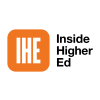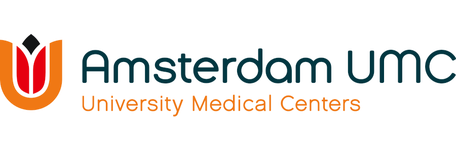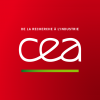Snabbfakta
-
- Durham
Ansök senast: 2025-02-15
Postdoctoral Research Associate in Palaeoceanography
Working at Durham University
A globally outstanding centre of teaching and research excellence, a warm and friendly place to work, a unique and historic setting - Durham is a university like no other.
As one of the UK's leading universities, Durham is an incredible place to define your career. The University is located within a beautiful historic city, home to a UNESCO World Heritage Site, and surrounded by stunning countryside. Our talented scholars and researchers from around the world are tackling global issues and making a difference to people's lives.
We believe that inspiring our people to do outstanding things at Durham enables Durham people to do outstanding things in the world. Being a part of Durham is about more than just the success of the University, it's also about contributing to the success of the city, county and community.
Our University Strategy is built on three pillars of research, education and wider student experience, but also on our keen sense of community and of inspiring others to achieve their potential.
Our Purpose and Values
We want our University to be a place where people can be free to be themselves, no matter what their identity or background. Together, we celebrate difference, value one another and are each responsible for creating an inclusive community that is respectful and fair for all.
Find out more about the benefits of working at the University and what it is like to live and work in the Durham area on our Why Join Us? - Information Page
The Role and Department
The Department of Geography at Durham comprises 65 academic staff (approximately equally divided between Human and Physical geography), a graduate school of around 100 research students, around 40 taught postgraduate students and 850 undergraduates. The Department is well supported with technical staff, including a cartography unit, and administrative staff.
The Department was ranked joint first for research quality among UK geography departments in REF2021. 54% of our outputs were classed as 'world leading' and more than 92% as 'world leading' or internationally excellent'. The most recent QS rankings for Geography placed Durham 16th overall in the world. The department is recurrently ranked in the top handful of programmes in the UK by various league tables; for example, we were ranked 1st in the 2025 Times and Sunday Times Good University Guide, and 4th in the 2025 Complete University Guide.
Our aim is to sustain and support hubs of leadership in geographical scholarship - broadly conceived. We will maintain our reputation for theoretical and conceptual innovation so that we are shaping and leading debates globally.
We will continue to engage concepts and materials from across disciplinary boundaries to renew geographical scholarship and bring geographical perspectives to bear in other domains. We work across every continent and most major oceans and embrace the full diversity of methods and data available to the discipline.
We are further developing our core undergraduate programmes and will be recruiting world leading staff accordingly to ensure these programmes continue to offer the highest quality of education that develop students with skills to advance scholarly and public debates to which geography is central. The quality of our undergraduate students, and the degree programmes which ensue, combine with our large graduate school to provide a teaching experience for staff that is truly excellent.
The Role
The Department of Geography at Durham University seeks to appoint two full-time Post-Doctoral Research Associates in Palaeoceanography to join the HORIZON EUROPE funded project "Past to Future: towards fully paleo-informed future climate projections (P2F)". Both posts are available for 30 months with Post 1, focusing on sea surface temperature and Post 2, on sea ice.
Both PDRAs will be contributing to a large research project ("P2F") where data and modelling are used in tandem: we seek candidates who have interests which could include proxy ocean temperature reconstructions, sea ice reconstructions, data-model comparison and integration, and climate changes which may vary from centennial-millennial-orbital timescales during the last ~4 million years.
The project Past-to-Future (P2F) aims at advancing our knowledge of past climatic conditions to better understand Earth's climate response to different kinds of forcing, with considerable focus on potential abrupt climatic transitions and the crossing of tipping points. To this end, P2F will integrate information from paleoenvironmental proxy data, from Earth system models (ESMs), and from rigorous theoretical approaches. Timescales of interest include the last glacial cycle, the mid Pleistocene transition, and the Pliocene warm period. P2F is led by Anna von der Heydt at the University of Utrecht, the Netherlands, and involves 21 European institutions spanning modelling and proxy approaches. Both PDRAs will be actively involved in discussions with the modelling teams around data synthesis and data interpretation including assessment of uncertainties.
The overall aim of Post 1 "sea surface temperature" PDRA will be to collate and generate high time resolution data of ocean temperature changes. The primary target time intervals are the last glacial cycle (the last ~130,000 years) and the mid Pliocene warm period (~3.0-3.5 million years ago). Where new data are required, the focus will be on generating organic geochemistry (biomarker) proxies: alkenones will be analysed at Durham University; the PDRA will also spend time with collaborator Dr Kasia Sliwinska at the Geological Survey of Denmark and Greenland (GEUS) in Copenhagen, Denmark to generate GDGT temperature data (https://pub.geus.dk/en/persons/kasia-sliwinska)
The overall aim of Post 2 "sea ice" PDRA will be to collate existing data on Arctic and Antarctic sea-ice extent spanning the last glacial cycle (the last ~130,000 years) and the mid Pliocene warm period (~3.0-3.5 million years ago). The PDRA will liaise closely with collaborator Helle Astrid Kjaer (University of Copenhagen, Denmark) on new data from Greenland ice cores (https://researchprofiles.ku.dk/en/persons/helle-astrid-kjær). There may be opportunities to generate high time resolution data of sea ice from marine or biological archives to fill in time gaps or provide more regional detail. We expect that the focus will be on organic geochemistry (biomarker) proxies at Durham University.
Please see the full list of responsibilities and person specification given below.
The successful applicants will join the large and internationally recognised groups of researchers in the Department of Geography including the 'Sea Level, Ice and Climate' cluster (https://www.durham.ac.uk/departments/academic/geography/research/clusters/sea-level-ice-climate/). They will join regular seminars and research mentoring events, have opportunities to present their own research, and receive training support from award-winning University programs.
Key responsibilities:
- To review and collate published data reconstructing sea ice or ocean temperatures and disseminating to the wider project team in appropriate formats (e.g. spreadsheets, maps)
- To prepare and analyse samples using established organic geochemistry techniques (extraction, separation, derivatisation; analysis by GC / GCMS / GCIRMS).
- To understand and convey material of a specialist or highly technical nature to the team or group of people through presentations and discussions that leads to the presentation of research papers in conferences and publications.
- To prepare and deliver presentations on research outputs/activities to audiences which may include: research sponsors, academic and non-academic audiences.
- To publish high quality outputs, including papers for submission to peer reviewed journals and papers for presentation at conferences and workshops under the direction of the Principal Investigator or Grant-holder.
- To assist with the development of research objectives and proposals.
- To conduct individual and collaborative research projects under the direction of the Principal Investigator or Grant-holder.
- To work with the Principal Investigator or Grant-holder and other colleagues in the research group, as appropriate, to identify areas for research, develop new research methods and extend the research portfolio.
- To deal with problems that may affect the achievement of research objectives and deadlines by discussing with the Principal Investigator or Grant-holder and offering creative or innovative solutions.
- To liaise with research colleagues and make internal and external contacts to develop knowledge and understanding to form relationships for future research collaboration.
- To plan and manage own research activity, research resources in collaboration with others and contribute to the planning of research projects.
- To deliver training in research techniques/approaches to peers, visitors and students as appropriate.
- To be involved in student supervision, as appropriate, and assist with the assessment of the knowledge of students.
- To contribute to fostering a collegial and respectful working environment which is inclusive and welcoming and where everyone is treated fairly with dignity and respect.
- To engage in wider citizenship to support the department and wider discipline.
- To engage in continuing professional development by participation in the undergraduate or postgraduate teaching programmes or by membership of departmental committees, etc. and by attending relevant training and development courses.
- [Any other specific responsibilities].
The post-holders are employed to work as part of a larger research project, led by Prof. McClymont at Durham and Dr von der Heydt at Utrecht University. Whilst this means that the post-holder will not be carrying out independent research in his/her own right, the expectation is that they will contribute to the advancement of the project, through the development of their own research ideas/adaptation and development of research protocols.
Both posts are fixed term for a period of 30 months; the project is time-limited and will end on 28 February 2029. Successful applicants will, ideally, be in post by 1st March 2025 or as soon as possible thereafter.
Working at Durham
A competitive salary is only one part of the many fantastic benefits you will receive if you join the University: you will also receive access to the following fantastic benefits:
• 30 Days annual leave per year in addition to 8 public holidays and 4 customary days per year - a total of 42 days per year.
• The University closes between Christmas and New Year - please include or delete if not applicable.
• We offer a generous pension scheme, As a new member of staff you will be automatically enrolled into the University Superannuation Scheme (USS).
• No matter how you travel to work, we have you covered. We have parking across campus, a cycle to work scheme which helps you to buy a bike and discount with local bus and train companies.
• There is a genuine commitment to developing our colleagues professionally and personally. There is a comprehensive range of development courses, apprenticeships and access to qualifications and routes to develop your career in the University. All staff have dedicated annual time to concentrate on their personal development opportunities.
• Lots of support for health and wellbeing including discounted membership for our state of the art sport and gym facilities and access to a 24-7 Employee Assistance Programme.
• On site nursery is available plus access to holiday camps for children aged 5-16.
• Family friendly policies, including maternity and adoption leave, which are among the most generous in the higher education sector (and likely above and beyond many employers).
• The opportunity to take part in staff volunteering activities to make a difference in the local community
• Discounts are available via our benefits portal including; money off at supermarkets, high street retailers, IT products such as Apple, the cinema and days out at various attractions.
• A salary sacrifice scheme is also available to help you take advantage of tax savings on benefits.
• If you are moving to Durham, you may be eligible for help with removal costs and we have a dedicated team who can help you with the practicalities such as house hunting and schools. If you need a visa, we cover most visa costs and offer an interest free loan scheme to pay for dependant visas.
Discover more about our total rewards and benefits package here.
Durham University is committed to equality, diversity and inclusion
Equality, diversity, and inclusion (EDI) are a key component of the University's Strategy and a central part of everything we do. We also live by our Purpose and Values and our Staff Code of Conduct. At Durham we actively work towards providing an environment where our staff and students can study, work and live in a community which is supportive and inclusive. It's important to us that all colleagues undertake activities that are aligned to both our values and commitment to EDI.
We welcome and encourage applications from those who are currently under-represented in our work force, including people with disabilities and from racially minoritised ethnic groups.
If you have taken a career break or periods of leave that may have impacted on the volume and recency of your research outputs and other activities, such as maternity, adoption or parental leave, you may wish to disclose this in your application. The selection committee will take this into account when evaluating your application.
The University has been awarded the Disability Confident Employer status. If you are a candidate with a disability, we are committed to ensuring fair treatment throughout the recruitment process. We will make adjustments to support the interview process wherever it is reasonable to do so and, where successful, reasonable adjustments will be made to support people within their role.
Person Specification
Essential Criteria:
Qualifications
Experience
Skills
Desirable Criteria
Experience
12. Knowledge of one or more of marine geochemistry, polar palaeo-climates, ice sheet history.
13. Strong publication record in peer-reviewed journals, commensurate with stage of career.
14. A track record of presenting research at conferences, symposia, or meetings, commensurate with stage of career.
Skills
15. Experience in sample preparation and analysis for inorganic geochemical (e.g. trace metal) or stable isotope analysis.
16. Experience in mapping or synthesising spatially distributed data sets (e.g. using GIS, R).
17. Demonstrable ability to plan and manage independent research.
Contact Information
Department contact for academic-related enquiries
For informal enquiries please contact Professor Erin McClymont (erin.mcclymont@durham.ac.uk). All enquiries will be treated in the strictest confidence.
Contact information for technical difficulties when submitting your application
If you encounter technical difficulties when using the online application form, we prefer you send enquiries by email. Please send your name along with abrief description of the problem you're experiencing toe.recruitment@durham.ac.uk
Alternatively, you may call 0191 334 6801 from the UK, or +44 191 334 6801 from outside the UK. This number operates during the hours of 09.00 and 17.00 Monday to Friday, UK time. We will normally respond within one working day (Monday to Friday, excluding UK public holidays).
University contact for general queries about the recruitment process
How to Apply
To progress to the assessment stage, candidates must evidence each of the essential criteria required for the role in the person specification below. It will be at the discretion of the recruiting panel as to whether they will also consider any desirable criteria, but we would urge candidates to provide evidence for all criteria.
While some criteria will be considered at the shortlisting stage, other criteria may be considered later in the assessment process, such as questions at interview.
Submitting your application
We prefer to receive applications online. We will update you about your application at various points throughout the selection process, via automated emails from our e-recruitment system. Please check your spam/junk folder periodically to make sure you have not missed any of our updates.
What to Submit
All applicants are asked to submit:
- a CV
- a cover letter which states whether you are interested in Post 1, Post 2 or both. Please also detail your experience, skills, and achievements in meeting (or the potential to meet) the criteria set out below.
- Contact details of 3 academic/research referees. Referees will be contacted following the short-listing process
Next Steps
Short-listed candidates will be invited to the University, either virtually or in-person and will have the opportunity to meet key members of the Department. The assessment for the post will normally include an interview and we anticipate that these will take place on a date to be confirmed.
In the event that you are unable to attend in person on the date offered, it may not be possible to offer you an interview on an alternative date.
Please note that in submitting your application Durham University will be processing your data. We would ask you to consider the relevant University Privacy Statement Job Applicants/Potential Job Applicants - Durham University which provides information on the collation, storing and use of data.
When appointing to this role the University must ensure that it meets any applicable immigration requirements, including salary thresholds which are applicable to some visas.












